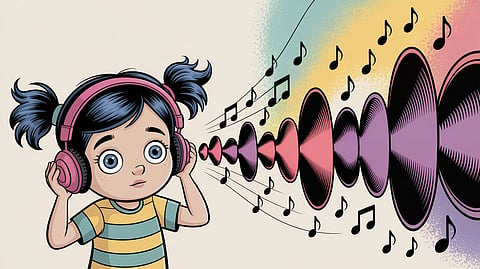

Have you ever recorded your voice and felt surprised by how different it sounds? Almost everyone has had this experience. The reason is that the voice you hear inside your head is not the same voice that other people hear.
When you speak, your ears receive sound in two ways. The first is air conduction — sound travels through the air into your ears, just as when you listen to other people. The second is bone conduction — the sound of your voice also travels through the bones and tissues of your skull, directly reaching your inner ear. Bone conduction adds extra depth and richness, so your voice sounds warmer and fuller to you.
A recording, however, captures only the sound that travels through the air. It leaves out the bone vibrations that you normally hear. As a result, when you listen to a recording of yourself, your voice may sound thinner or higher-pitched than expected.
The brain also plays a role. When you speak, your brain predicts the sound it expects to hear. Listening to a recording challenges this prediction, which is why the voice can feel unfamiliar or even strange.
With practice, though, you can get used to it. Singers, actors, and speakers regularly listen to recordings of their voice. Over time, their brain adjusts, and they become more comfortable with how they sound to others.
So the next time you hear your recorded voice and feel surprised, remember this: that is the version everyone else already knows. It may sound unusual to you, but it is perfectly normal.